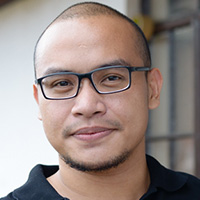

Part 1
In many of his late-night public addresses on the COVID-19 situation, President Rodrigo Duterte’s obvious fixation with the New People’s Army has been apparent, oftentimes overtaking what the public have been expecting to hear from him.
And then, in a matter of weeks and while battling public criticisms of how the government had mishandled the pandemic, the “anti-terror” bill popped in the public’s consciousness like a thief in the night. It was followed by the President sending a letter to the Speaker certifying the bill as “urgent” and calling for its instantaneous passage before Congress went on a two-month break starting June 6.
Under Article VI Section 26 (2) of the 1987 Constitution, “no bill passed by either House shall become a law unless it has passed three readings on separate days.” The Constitution suspends this rule “when the President certifies to the necessity of its immediate enactment to meet a public calamity or emergency.” Once suspended, full debate and deeper examination of the proposed measure is dispensed with, and the bill can be passed in a day. As to whether there are terrorist activities constituting “public calamity or emergency” to justify its urgency is something which I believe is justiciable or can be taken to court.
With its approval rushed, the anti-terror bill has been passed in both houses of Congress as quickly as the escalation of corona virus infections and despite a very strong public opposition that we have not seen in many years! (The Senate passed its version of the bill in February.) (READ: ‘Terror law’: The pet bill of the generals)
My fellow Chevening scholar, lawyer Edy Santiago, has noted 4 crucial points in the bill. Edy was the human rights officer for the island-provinces of Basilan, Sulu, and Tawi-Tawi from 2013 to 2017 under the Regional Human Rights Commission of the former Autonomous Region in Muslim Mindanao.
- It sanctions warrantless arrests outside of the limited circumstances allowed by the Rules of Court.
- It allows wire-tapping of private conversations or communications upon ex parte application before the Court of Appeals and without an opportunity for the “suspect” to present counter-veiling evidence at any stage of the proceedings.
- It sanctions detention of “suspects” for 14-24 days without a valid commitment order from the courts.
- It authorizes the unilateral “designation” of persons or groups as “terrorists” by the Anti-Terrorism Council (whose members count the “alter-egos” of the President in the Executive) and utter lack of remedies to question such designation before the courts.
With these extraordinary powers, the government can easily label anyone as “terrorist,” given its loose and sweeping new definition, arrest without warrant, and make them disappear up to 24 days even without a commitment order from a court. This is prone to abuse and can easily be weaponized against those deemed undesirable by the government.
Edy’s concern springs from her years of ground experience battling government abuses in its fight against terrorism in Basilan, Sulu, and Tawi-Tawi. She wrote:
As part of the institution’s mandate, we have assisted and even represented before government offices and the courts persons who have been unlawfully arrested (usually at ungodly hours, at dawn, by a composite group of security officers, unnamed, wearing bonnets and with nay warrants of arrest, arriving and leaving on a rubber boat).
Such arrests would usually be accompanied by ransacking the home of the “suspect” and even physically harming other family members. Such arrests would also be usually based on mistaken identity because the suspect’s name just happened to be “Abdul” or “Mohammad” or one of the more common Muslim male names.
The challenge in lending legal assistance to these arrested individuals (usually a farmer or a fisherman and a productive member of the community) is how to get in touch with them – to trace their whereabouts – after their arrest. My Team called it the “Amazing Race” part of the process. How to contact them before they immediately get transported to Cebu or Manila for so-called “security reasons” via Zamboanga City.
It was very difficult to help them then. With the passing of this terror bill, helping them now has been made virtually impossible.
Aside from this, there is a concern on the impact of the bill on free speech, particularly by defining a new crime called “inciting to commit terrorist acts” punishable with a penalty of imprisonment from 6 to 10 years. The provision punishes “any person who distributes or otherwise makes a message available to the public with the intent to incite another by any means, directly or indirectly, to commit a terrorist act where such conduct causes a danger of such acts being actually committed.” (READ: EXPLAINER: Comparing dangers in old law and anti-terror bill)
The concern is not only about its definition, which is again so loose and sweeping that it even covers “indirect” incitement, but that this came in amid multiple arrests involving common folks over their social media posts using the same maneuver (inciting to sedition under the Revide Penal Code).
As a whole, the bill suffers from obvious legal infirmities, essentially begging for a constitutional challenge. While I agree that the state should be armed with powers to address terrorism, the bill’s loose standards and sweeping scope, matched with a grant of draconian powers, is a devil’s playground, a prelude to hell in the hand of a despot. – Rappler.com
Next, on Sunday, June 7: [EXPLAINER] Can government employees post criticism of the anti-terror bill?
Emil Marañon III is an election lawyer specializing in automated election litigation and consulting. He graduated from the SOAS, University of London, where he studied Human Rights, Conflict, and Justice as a Chevening scholar. He is a partner at Trojillo Ansaldo and Marañon (TAM) Law Offices.